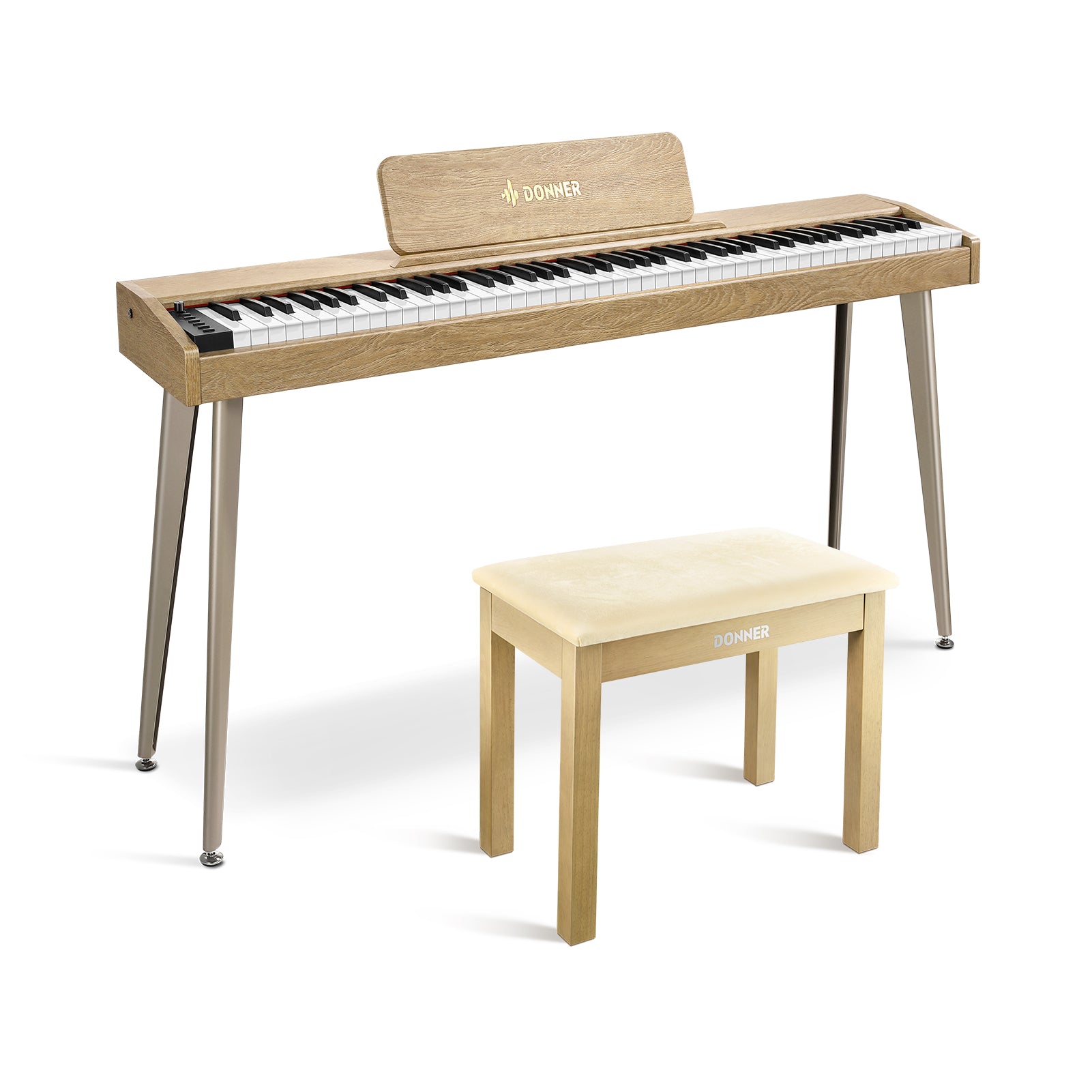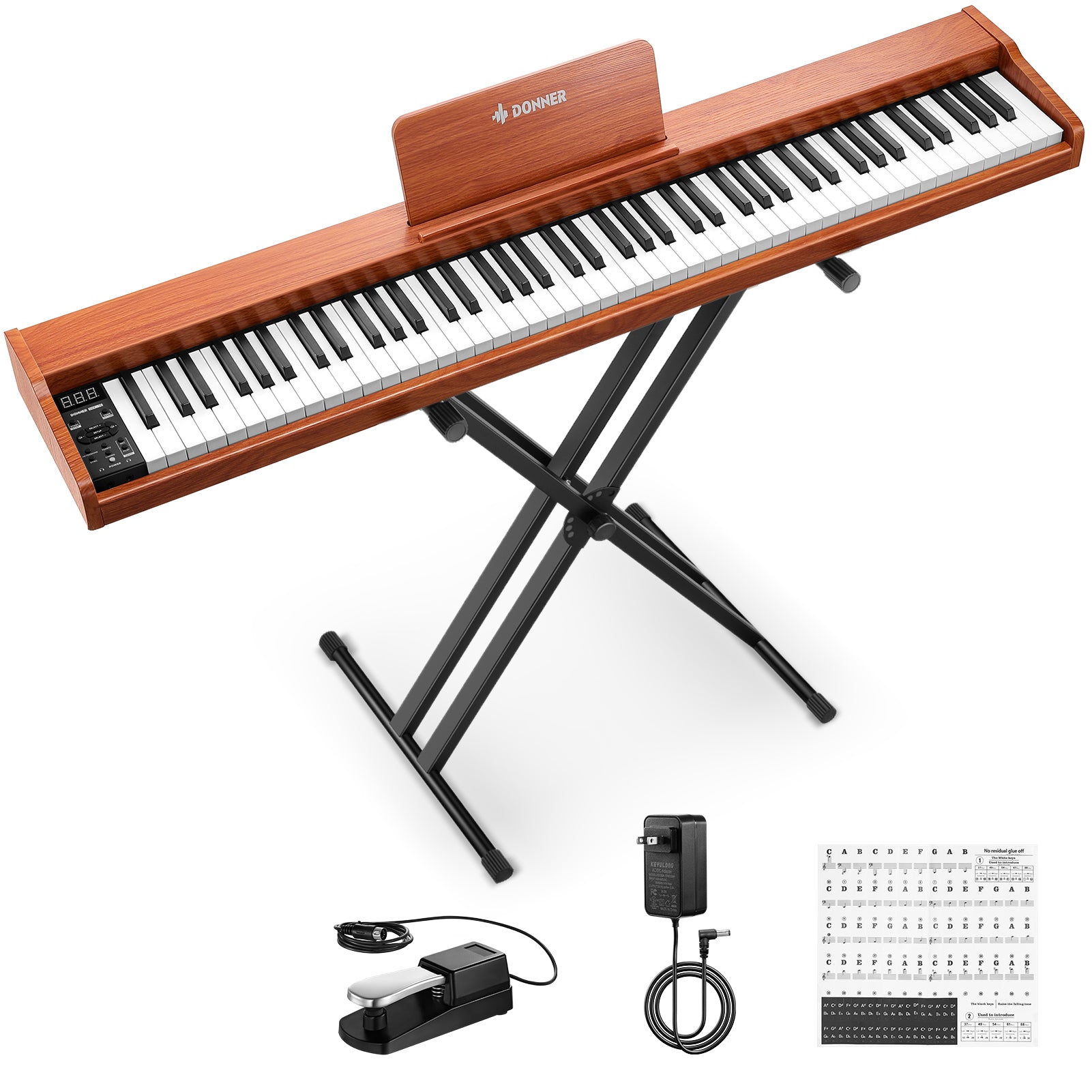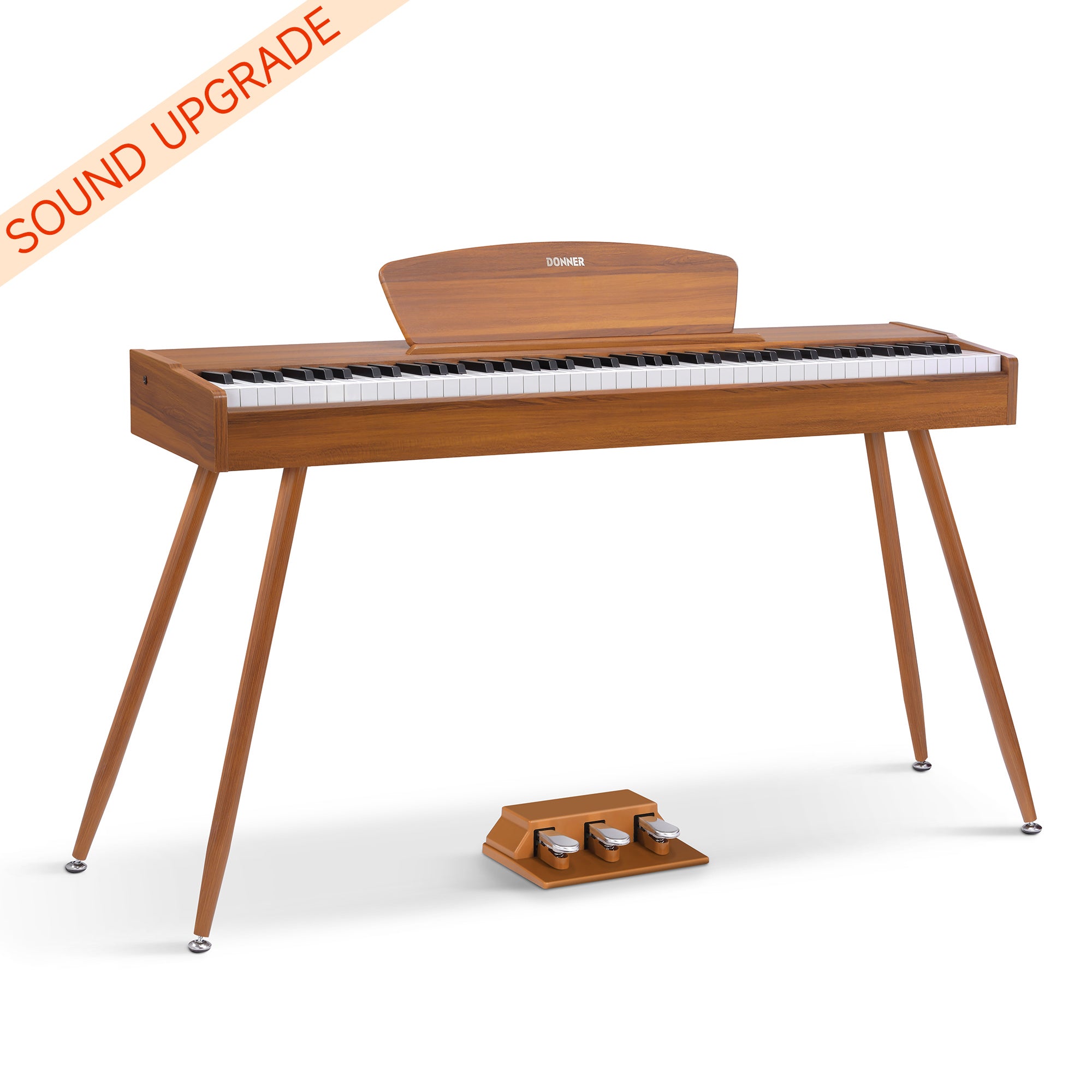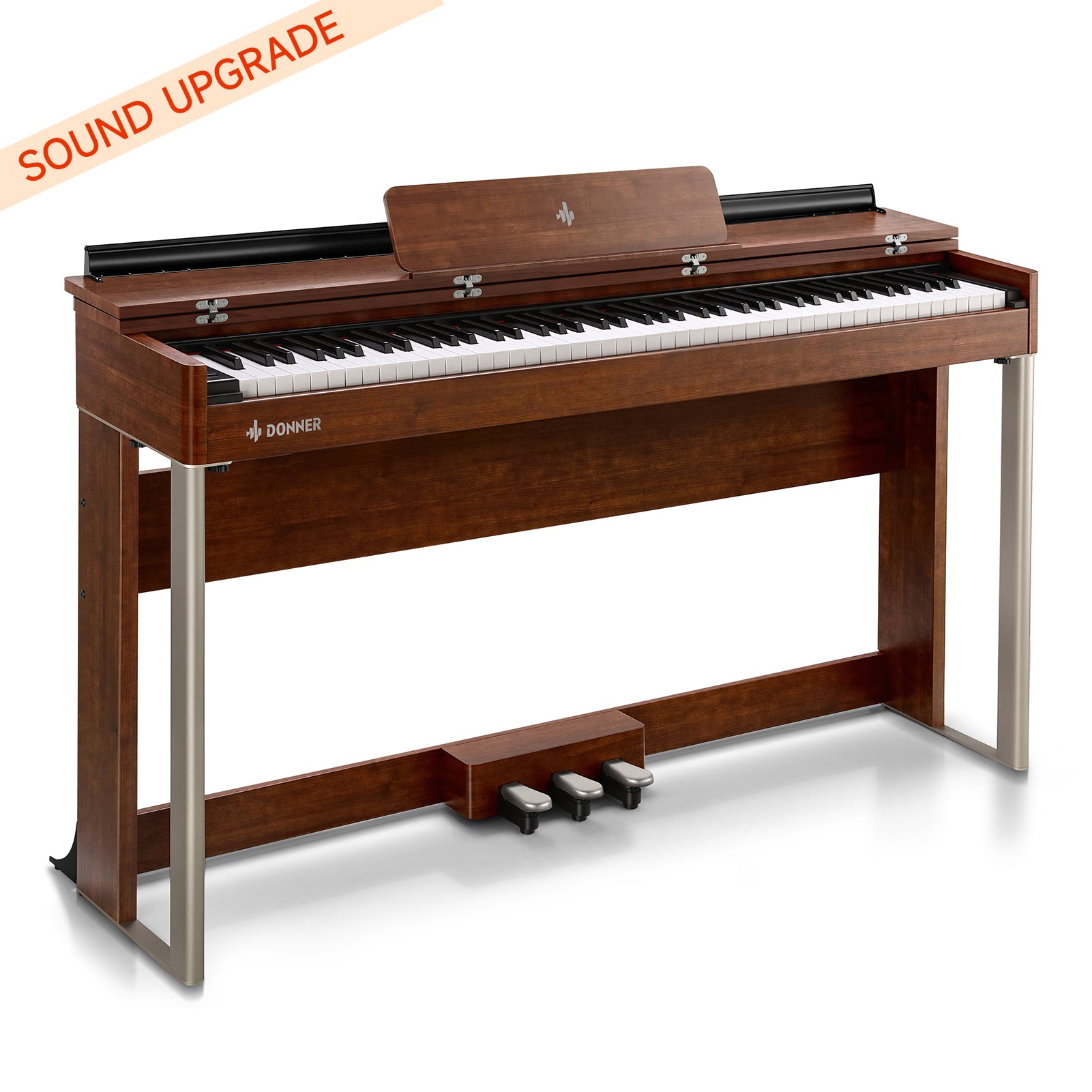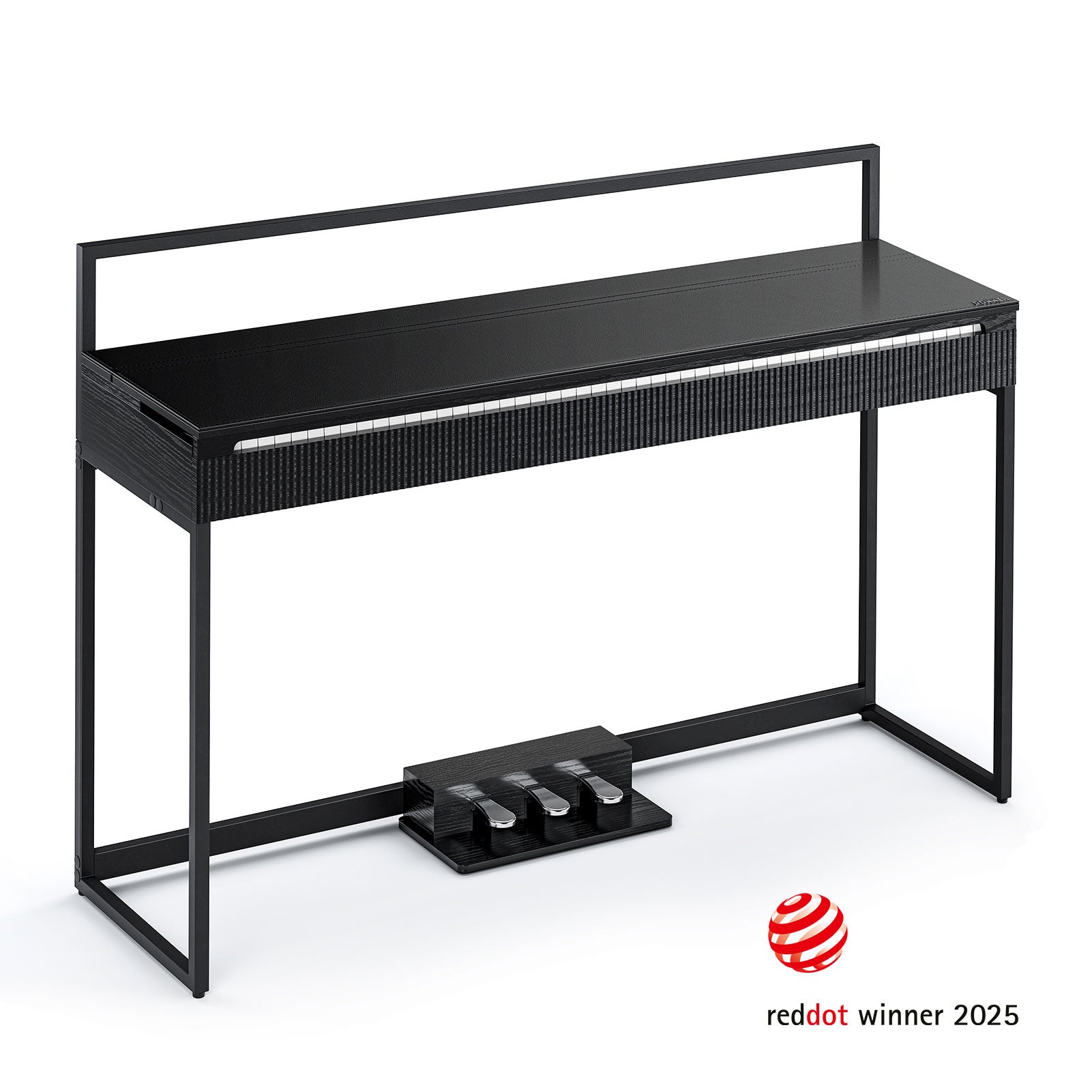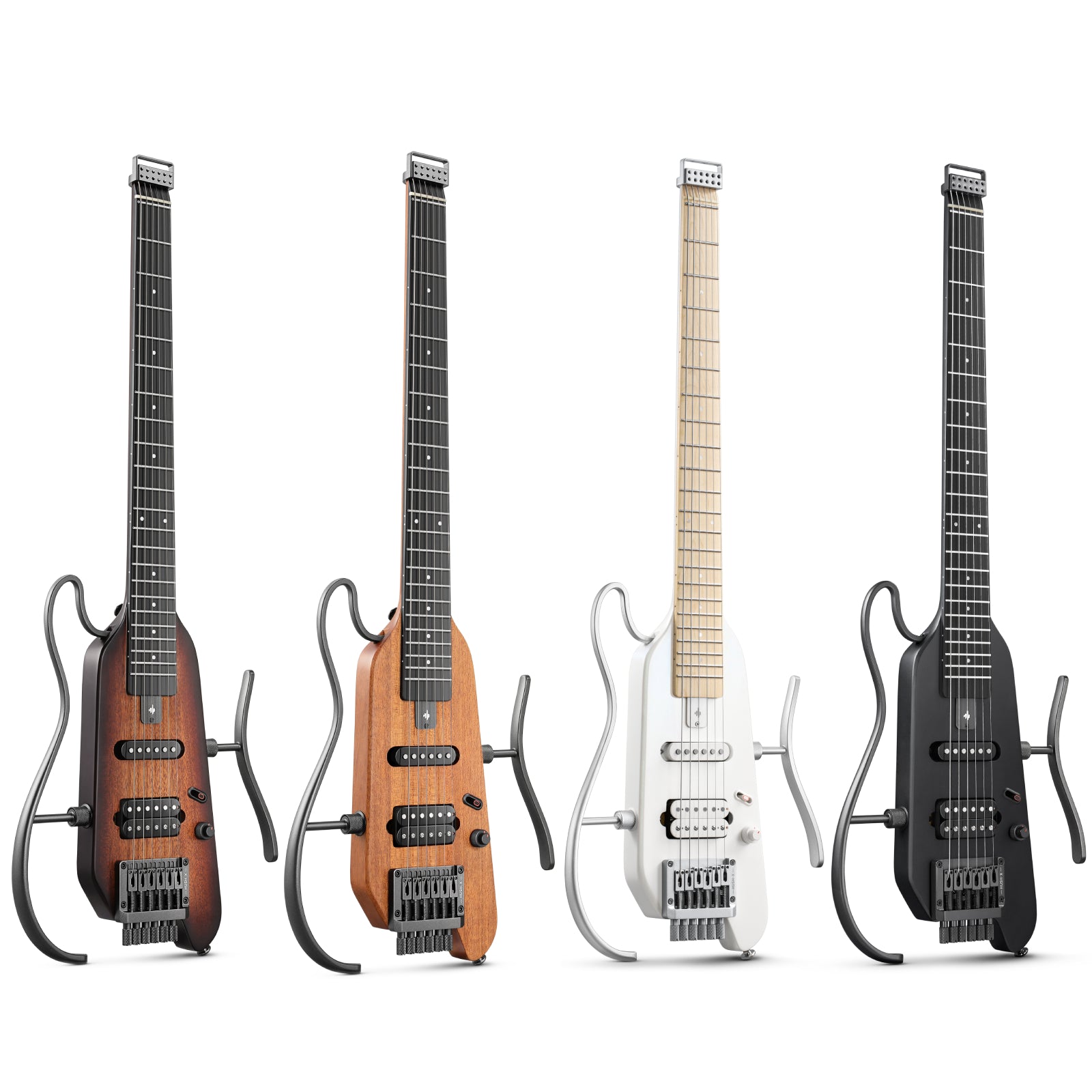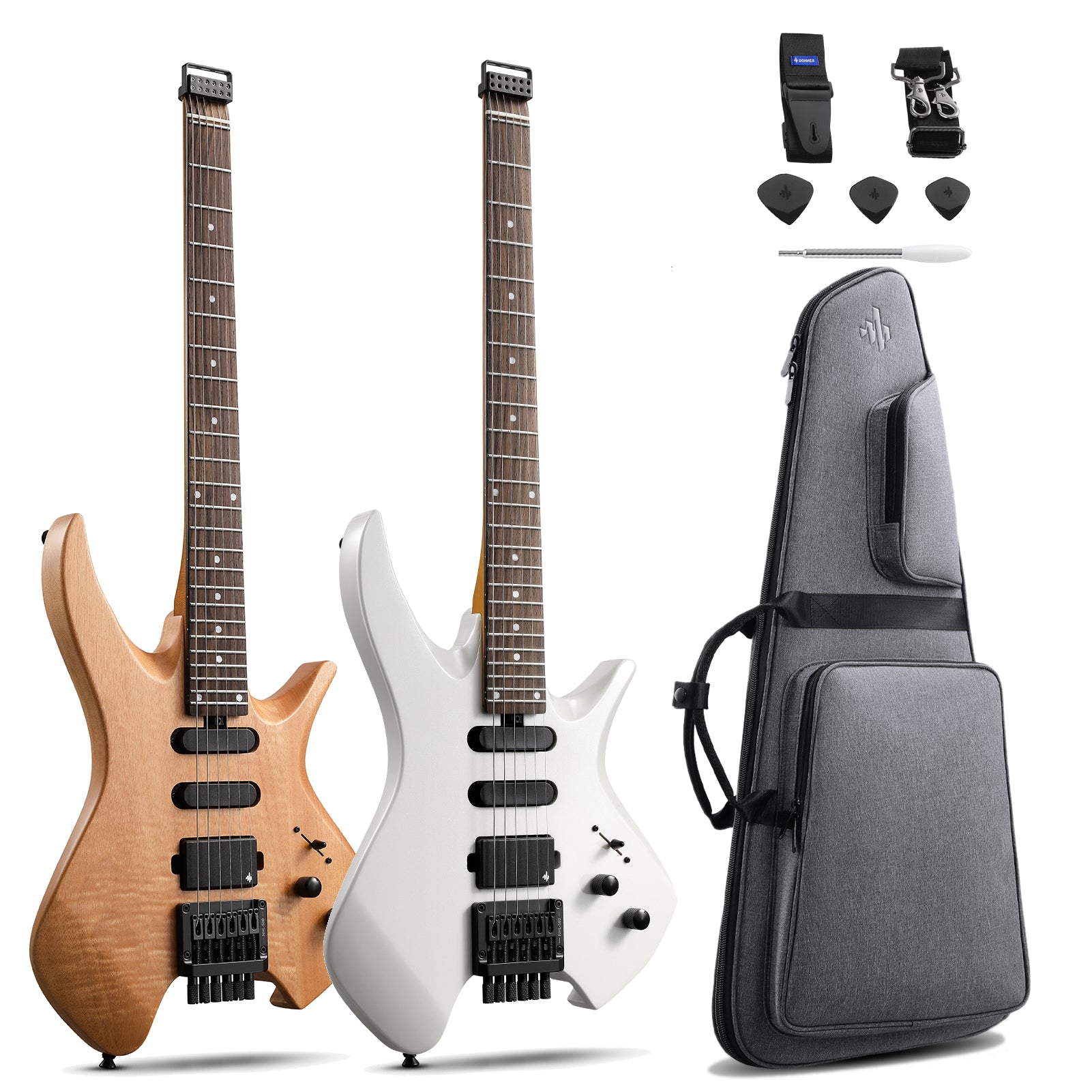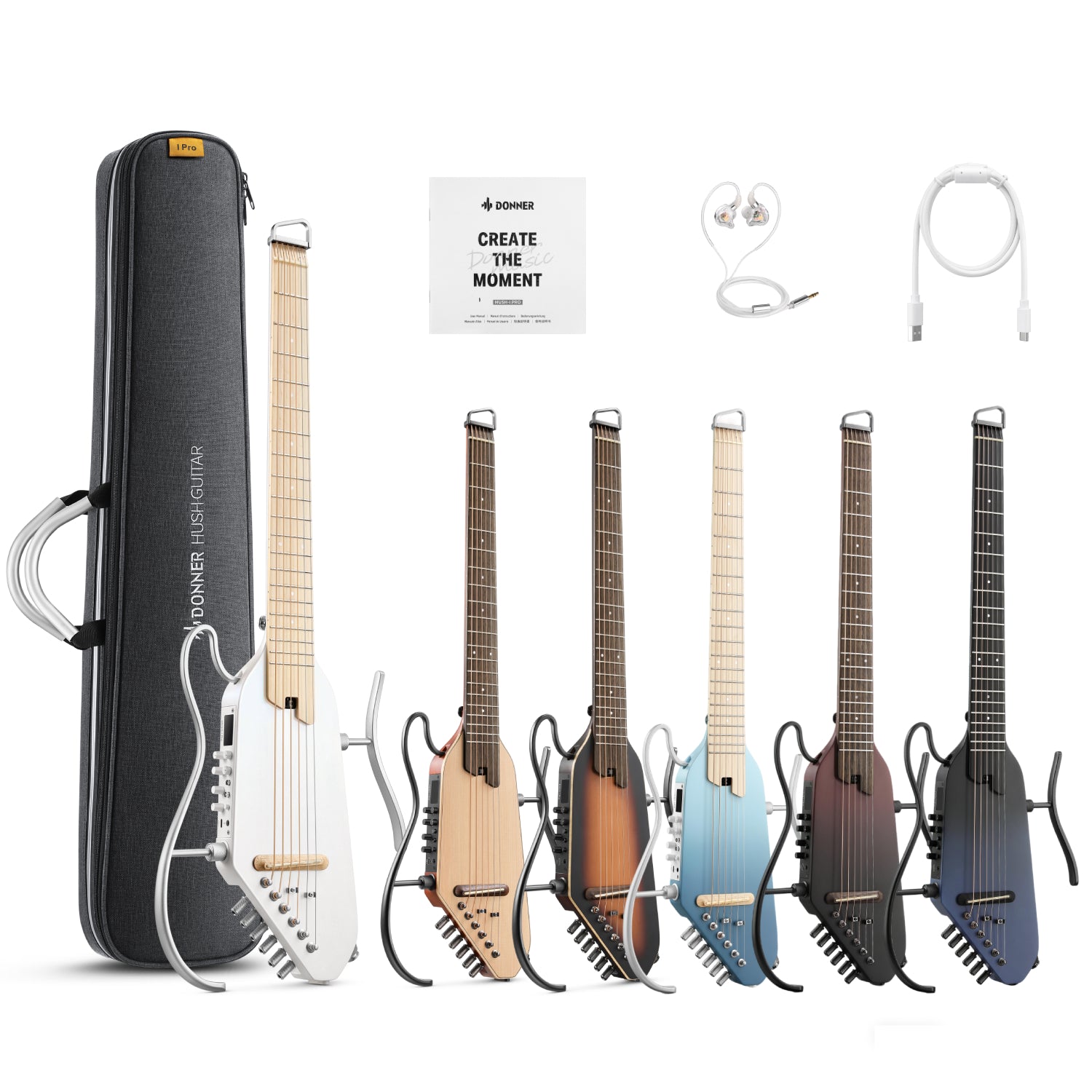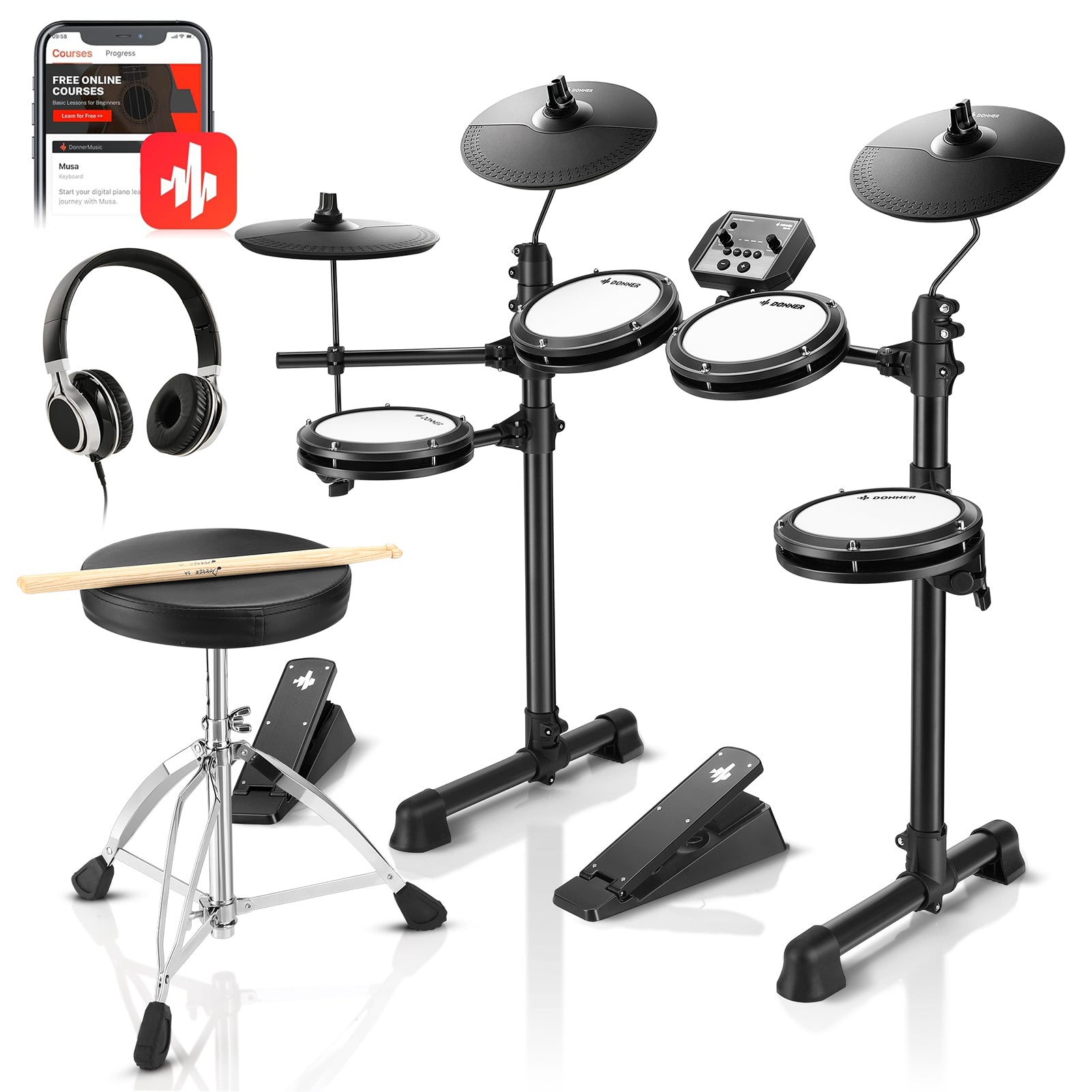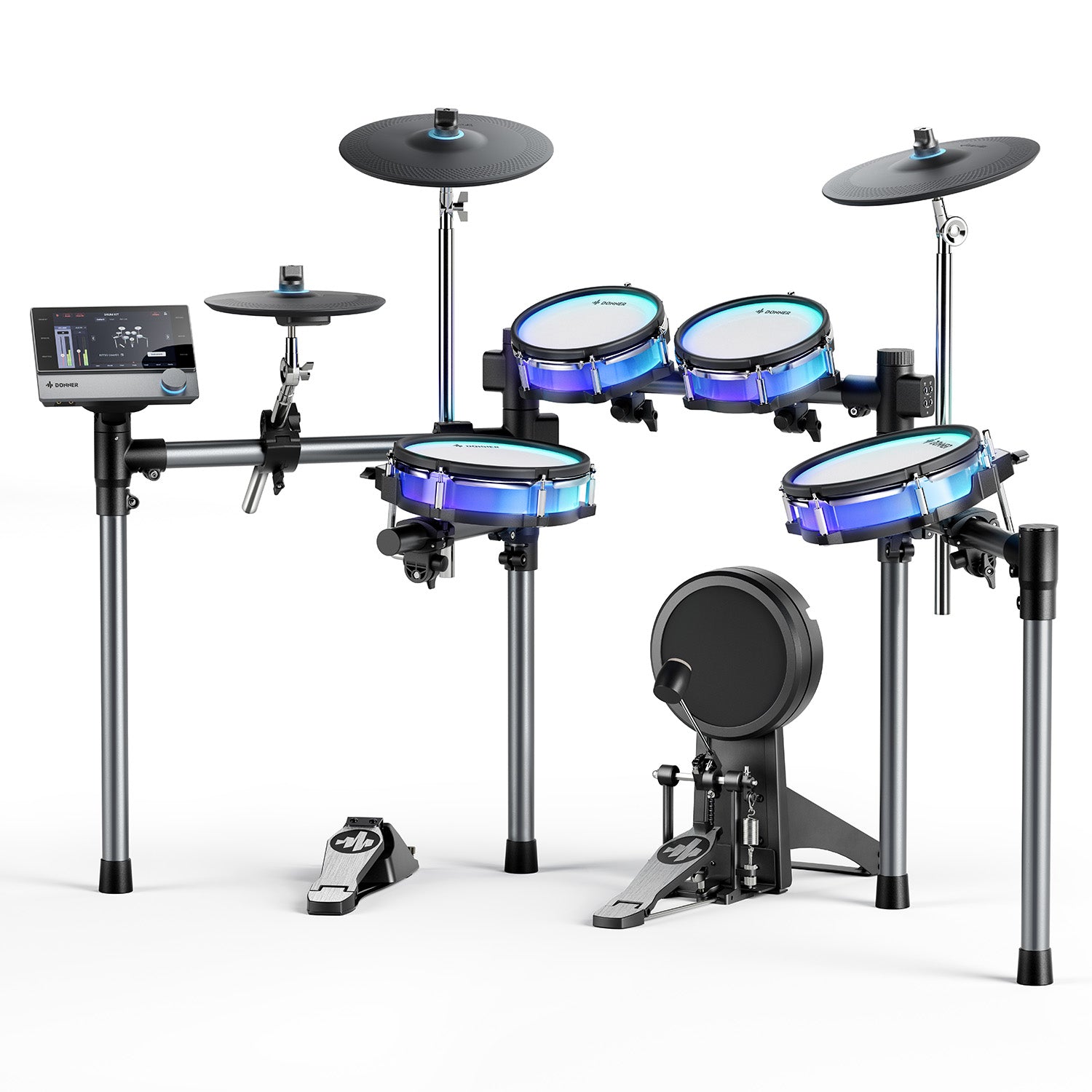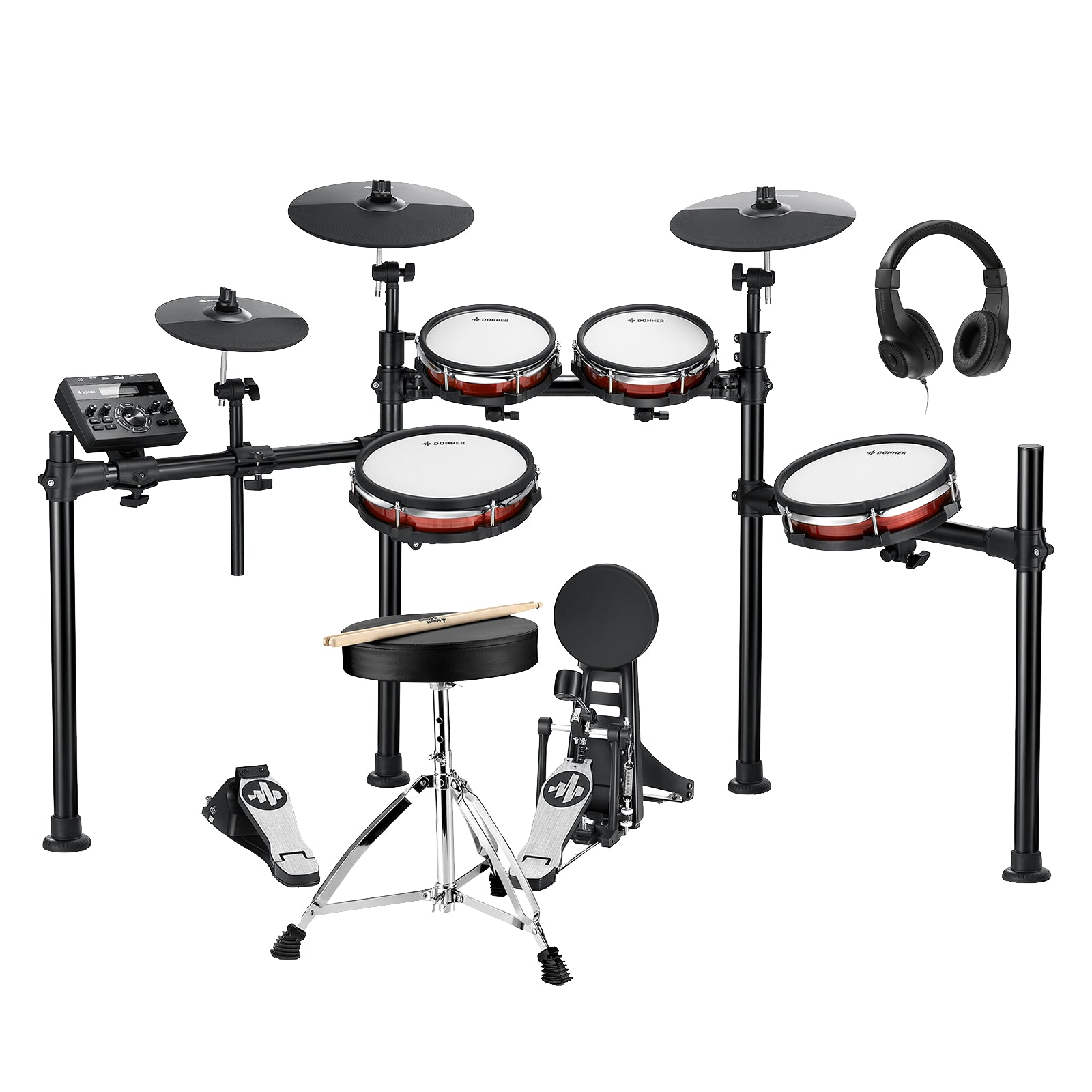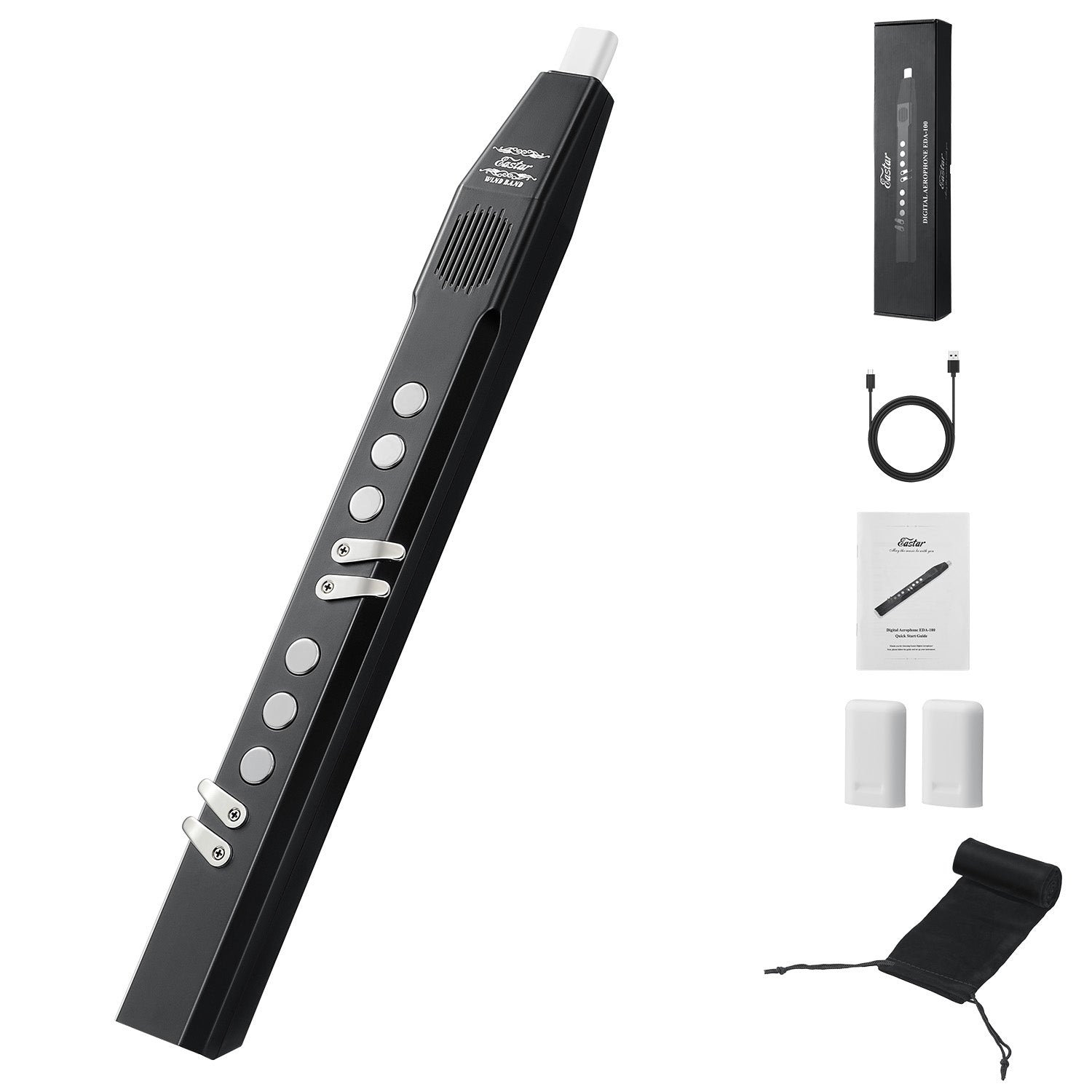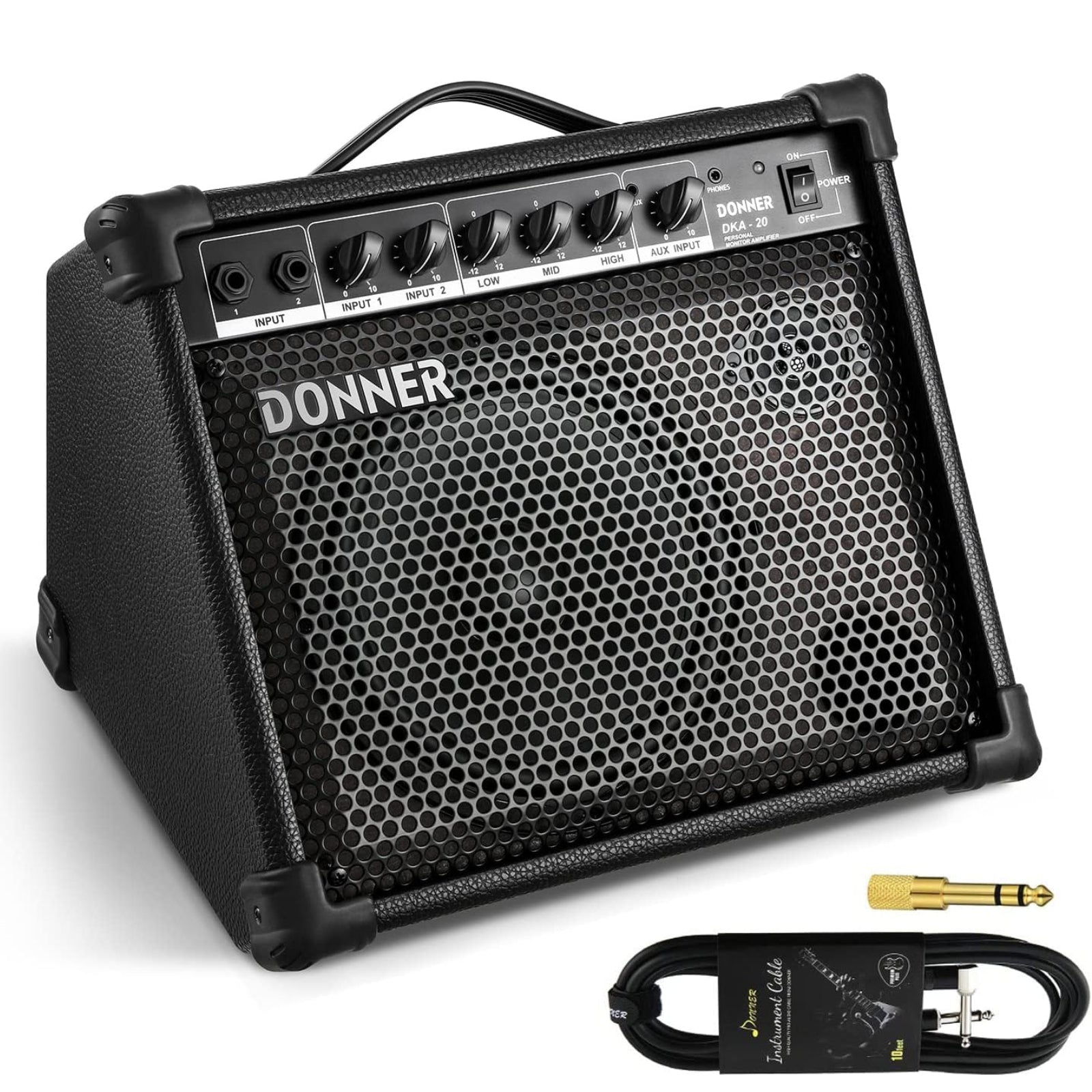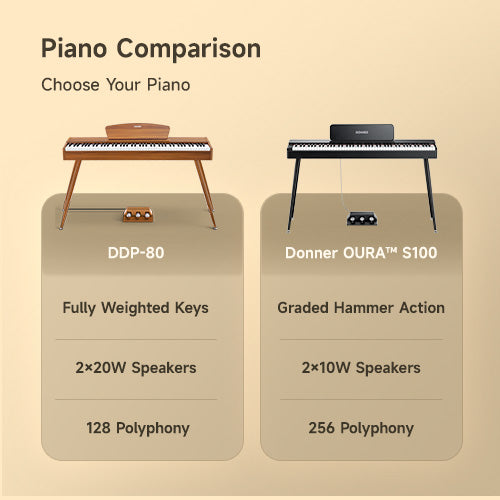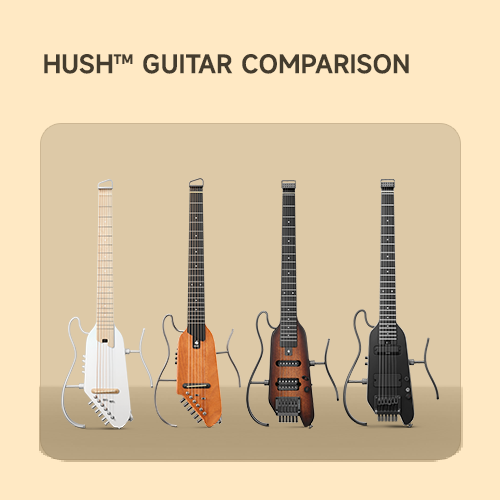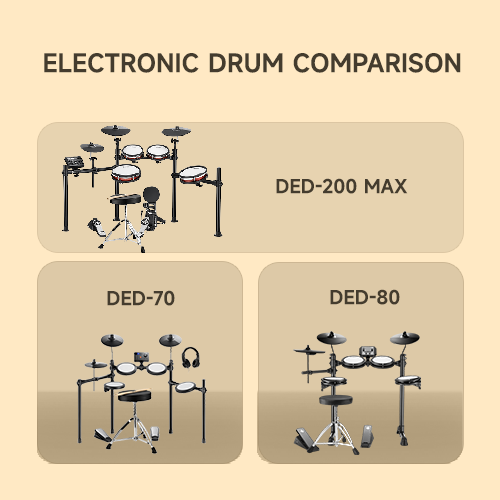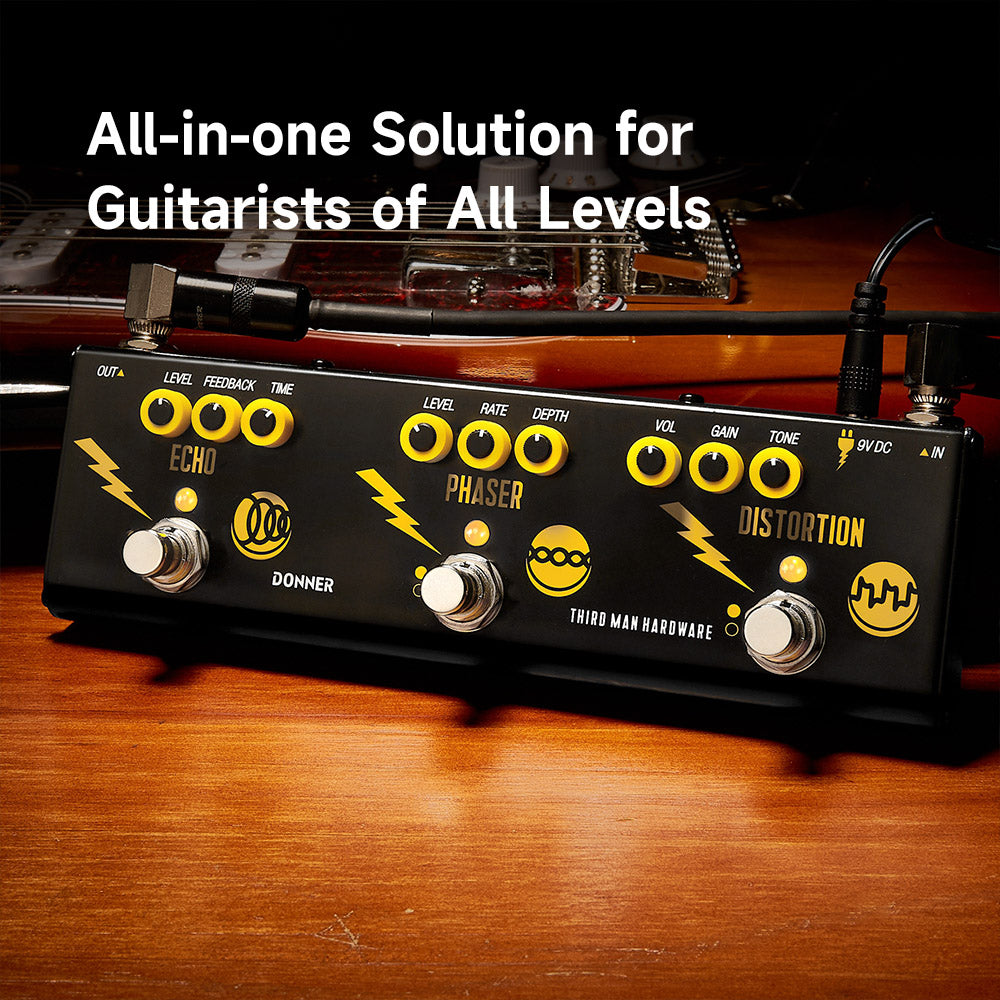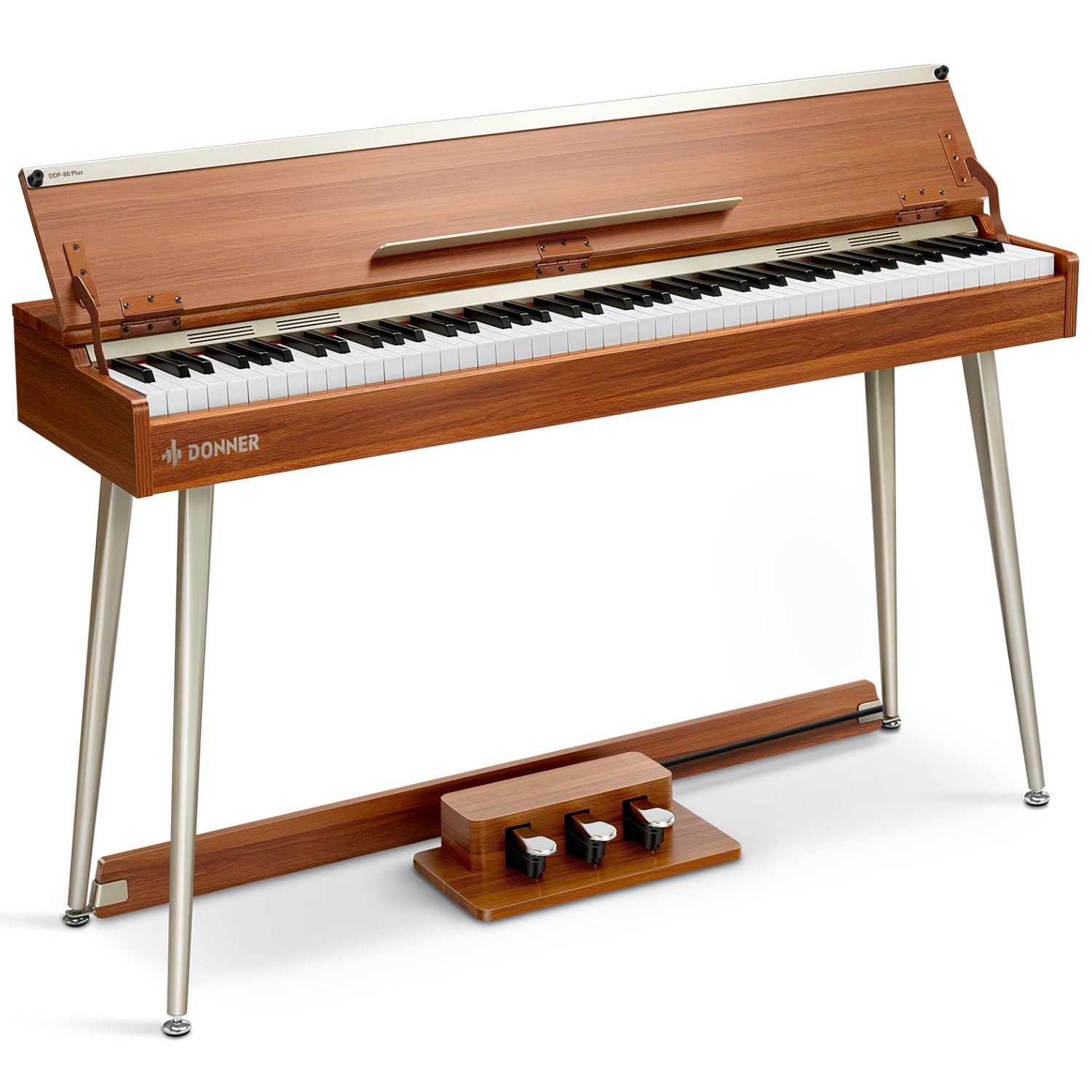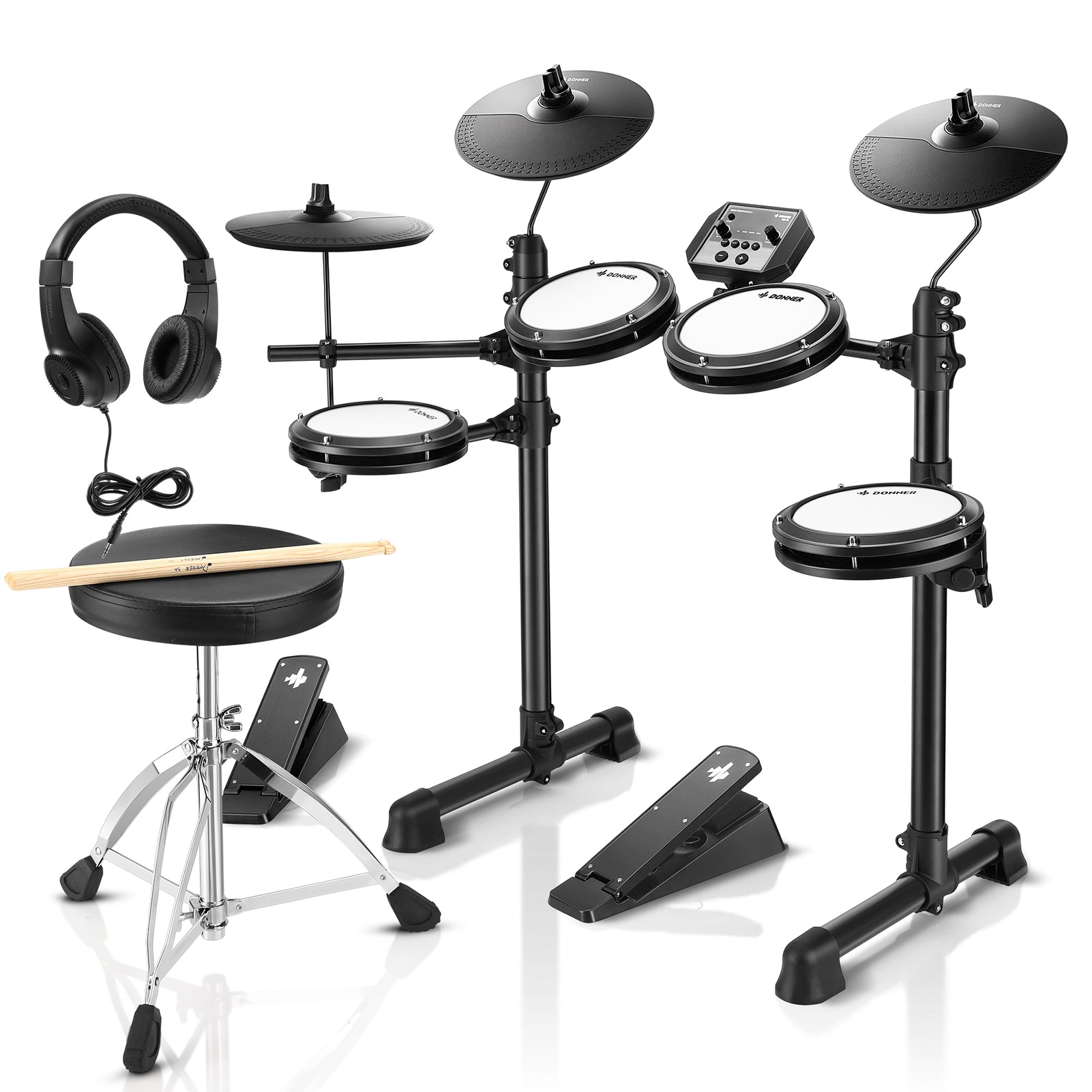Choosing your first electric guitar can be a tough decision, and the pickup configuration is one of the most important factors. You’ll often see two main options: SSS (Single-Single-Single) and HSS (Humbucker-Single-Single) with a coil-split.
So, what's the difference, and which one is right for you? This guide will break down the features, pros, and cons of each setup, helping you make an informed choice that matches your playing style and budget.
Understanding SSS (Single-Single-Single) Pickup Configuration
The SSS configuration features three single-coil pickups, one each in the neck, middle, and bridge positions. This setup is famous for producing the bright, crisp, and articulate tones that defined iconic music genres like blues, funk, and classic rock.
Key Features of SSS:
- Classic Tones: SSS pickups deliver a clean, bell-like sound with a "glassy" quality. This is the sound of legends and is perfect for dynamic, expressive playing.
- The "Quack" Tone: When you combine the neck and middle or bridge and middle pickups, you get a unique, hollow tone often called the "quack." This sound is a staple in genres like funk and R&B.
-
Ideal for Clean to Mid-Gain: SSS pickups excel when you’re playing with a clean tone or light overdrive, where their clarity and sparkle can really shine.
Considerations for SSS:
- Susceptible to Noise: Single-coil pickups are more prone to picking up electromagnetic interference, which can create a noticeable buzz or hum, especially in high-gain settings.
- Best for Specific Genres: While versatile, the SSS setup truly shines in genres that prioritize classic, clear tones, such as blues, country, pop, and vintage rock.
Best Suited For:
- Blues: The clear, dynamic response of single-coils is perfect for expressive blues playing.
- Country: The bright and twangy tones are a staple in country music.
- Pop: The articulate and sparkling sound fits well in pop music.
- Funk: The "quack" tones are highly favored in funk's rhythmic playing styles.
- Classic Rock: Ideal for clean or slightly overdriven classic rock tones.
The Donner DST-80 electric guitar is an excellent choice. It features a timeless SSS pickup configuration that delivers all the classic tones you need to start your journey.
Understanding HSS (Humbucker-Single-Single) with Coil-Split Pickup Configuration
The HSS configuration combines a humbucker pickup in the bridge position with two single-coils in the middle and neck positions. This is a "best of both worlds" setup, offering versatility that can handle a wider range of musical styles. The coil-split feature is a game-changer, allowing the powerful humbucker to function as a single-coil with the flip of a switch.
Key Features of HSS with Coil-Split:
- Incredible Versatility: The bridge humbucker delivers a thick, powerful tone with higher output, making it perfect for hard rock and metal. The two single-coils give you access to those classic, articulate clean tones.
- Noise Reduction: Humbuckers are designed to "buck the hum" by canceling out noise and interference. This makes the HSS setup ideal for high-gain settings where a quiet signal is crucial.
-
The Power of Coil-Splitting: With the coil-split function, your bridge humbucker can act like a single-coil, giving you even more tonal options. You can switch from a heavy metal rhythm to a crisp funk riff in seconds.
Considerations for HSS with Coil-Split:
- More Complex: The vast number of tonal options might be overwhelming for some absolute beginners, but it's a great feature for players who want to explore different genres.
- Not a "True" Single-Coil: While a split humbucker can sound very similar to a single-coil, it won't be an exact match due to differences in design and wiring.

Best Suited For:
- Rock: The versatility of HSS is ideal for rock, providing both powerful humbucker tones and clear single-coil sounds.
- Hard Rock & Metal: The bridge humbucker delivers the high output and sustain needed for these genres, with coil-splitting for cleaner passages.
- Alternative & Indie: Requires a range of tones from clean to distorted, which HSS can handle effectively.
- Fusion & Jazz-Rock: Suitable for complex tonal needs, offering clarity for intricate chords and punch for solos.
- Versatile Styles: Ideal for cover bands or players who enjoy a variety of genres, thanks to its wide tonal palette.
Our Recommendations: If you want a guitar that can do it all, the Donner DST-152 electric guitar is a perfect match. Its HSS configuration with a coil-split function provides 7 unique tones, making it suitable for any genre. For intermediate or pro players seeking enhanced features like a carbonized maple neck and a brand new string locking system, the Donner DST-550 is an exceptional choice. It also features a 7-tone selection system with ThunderForge pickups for ultimate versatility.
Similarities Between SSS and HSS with Coil-Split
Despite their differences, SSS and HSS with coil-split configurations share several similarities:
- Single-Coil Tones: Both setups can produce single-coil sounds, with HSS achieving this through coil-splitting.
- Versatility: Both offer a wide range of tones suitable for various music styles.
- Familiar Pickup Positions: Both configurations feature neck, middle, and bridge pickups, making them intuitive for players.
- Clean Tones: Both can produce clean, articulate tones, with HSS achieving similar results to SSS when the humbucker is split.
Quick Comparison: SSS vs. HSS
Choosing the Right Configuration for You
When deciding between SSS and HSS with coil-split, consider the following factors:
For Classic Tones:
If you seek the traditional Stratocaster sound and primarily play clean or low-to-medium gain music, the SSS configuration is ideal.
For Versatility:
If you need a guitar that can handle a variety of styles and gain levels, the HSS configuration with a coil-split is more suitable. The ability to switch between humbucker and single-coil sounds provides a wider tonal palette.
For Noise Reduction:
If you play in high-gain settings frequently, the humbucker in the HSS setup will offer better noise reduction compared to the all single-coil SSS setup.
For Genre-Specific Needs:
- SSS Configuration: Best for styles that emphasize clean, articulate tones with a bright and clear character. Ideal for blues, country, pop, funk, and classic rock.
- HSS with Coil-Split: Best for styles that require both clean and high-gain tones, offering versatility and power. Ideal for rock, hard rock, metal, alternative, indie, and fusion.
Conclusion: Which Pickup Is Right for You?
When deciding between SSS and HSS with coil-split pickups, consider your musical needs and what inspires you.
- For the Purist: If you're a purist who loves the dynamic, classic sounds of blues and classic rock, the SSS configuration is the way to go.
- For the Versatile Player: If you want a guitar that can handle everything from sparkling clean tones to aggressive, high-gain riffs, the HSS configuration with coil-split is your best bet.
No matter your choice, you'll be on your way to making great music. Now that you know the difference, you can confidently choose the guitar that will help you find your unique sound.
Want to learn more?
Explore our SSS electric guitars like the DST-80.
Discover our versatile HSS models like the DST-152 and DST-550.
Last Update: August 15th, 2025




